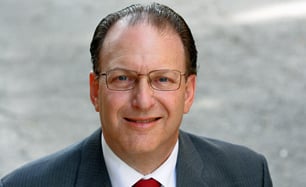Sandra H., barely 21, was the designated driver for an outing with two of her closest girlfriends, whom she had known since elementary school. Driving home on the Northbound 5 freeway in Glendale, late at night, her car went into a skid from the number one lane all the way across the freeway to the embankment, where the car stopped when it hit a tree. All three people in the car were knocked unconscious. When assistance arrived, they had to use the “jaws of life” to peel back the metal to extract the occupants. As is normal, the person with the most minor injuries (and who is presumed will have the best chance of survival) is removed first and the person least likely to survive is removed last. Sandra H. was removed last.
All three young women were hospitalized. Sandra H. remained in a coma for quite some time. When she came out of the coma, she found out that one of her closest friends, Jeanette M., had suddenly died as the result of brain swelling resulting from the accident. Sandra H. was understandably distraught. Then the district attorney’s office decided to charge Sandra H. with vehicular manslaughter, under the theory that Sandra H.’s driving must have been (somehow) responsible for the accident that led to Jeanette M.’s death.
Over a year of back-and-forth negotiations with the district attorney’s office ultimately was unable to satisfactorily resolve the matter. Finally, the matter went to trial in Glendale, with Michael Levin as trial attorney. The trial lasted over a week, with the prosecution contending that their “experts” had ascertained that:
- Sandra H. was speeding, based on the skid marks;
- Sandra H. was intoxicated, based on conjecture; and
- Their experts had ruled out a mechanical failure of the steering or braking systems as a cause of the crash.
Michael Levin was able to show the jury that the prosecution’s “expert” on the skid mark had not performed the necessary calculations correctly, and therefore couldn’t prove that the car was speeding. He was able to prove that Sandra H. had not consumed any drugs or alcohol. Mr. Levin was also able to completely discredit the prosecution’s claim that they had ruled out mechanical failure when he got the expert to admit that he had only checked for hydraulic leaks (and nothing else) before concluding the steering and brakes were functional.
Following a brief deliberation, the jury not only returned a unanimous verdict of NOT GUILTY, several of the jurors made a point of telling Sandra H. that it could have happened to any one of them and that she should not hold herself responsible for her friend’s tragedy.


